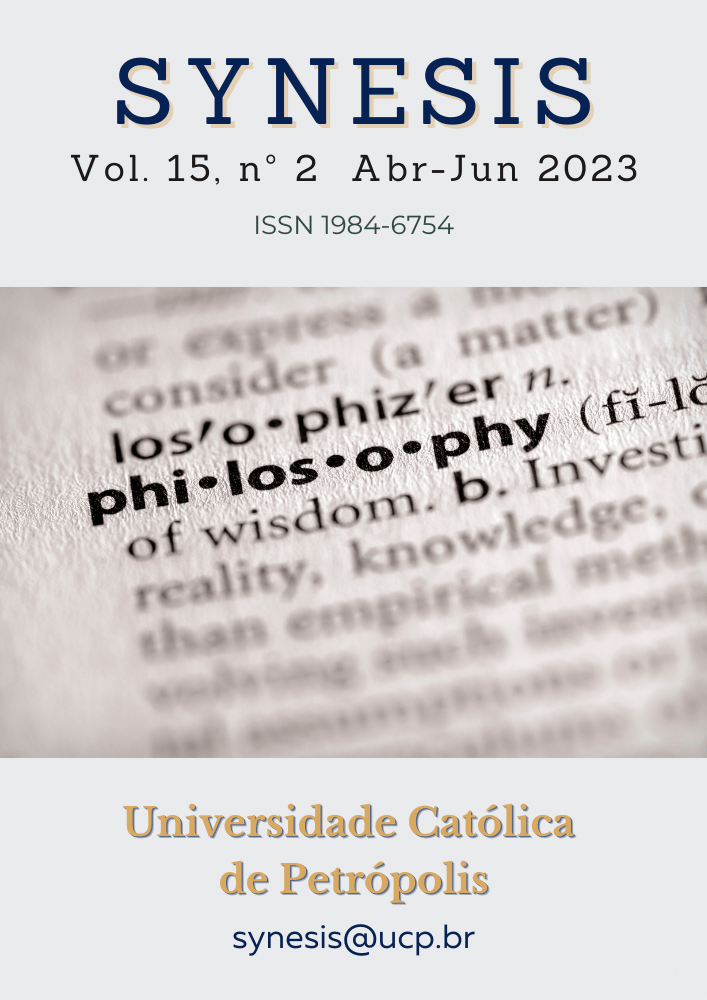Abstract
The philosophy of language is to study issues relating to the nature of language and its impact on human life. Its modern and postmodern studies have placed language in a very important position in communication and world perception. As a defender, developer, and practical practitioner of Mac philosophy, Leni used language as a sharp weapon to carry out that mission. Vladimir Ilyich Lenin considered language a communication tool which is not just enclosed in a structural form, but the language essence is determined in the process of communicating. In a simple way of expressing himself, V.I. Lenin was able to highlight the misrepresentations of Marxism and socialism. In this article, we will clarify the theoretical basis of language in philosophy and point out the causes leading to language - a tool of social struggle in V.I. Lenin's philosophical thought. The article will highlight the language that V.I. Lenin used when discussing issues such as: history-society; freedom; class struggle; liberate, release, free; liberation force.
References
Saussure, Ferdinand de, “Course in General Linguistics” Eds. Charles Bally & Albert Sechehaye. Trans. Roy Harris. La Salle, Illinois: Open Court. 1983 ISBN 0-8126-9023-0
Job W. Mwakapina, “What is the Nature of Language? How does it Behave? What is Language Learning then? A Review Paper in Applied Linguistics”, Randwick International of Education and Linguistics Science Journal ISSN Online: 2723-2433, Vol. No. 4, December 2021 | Page 603-618 |, DOI: https://doi.org/10.47175/rielsj.v2i4.357
Binoy Barman, “the linguistic philosophy of Noam Chomsky”, Philosophy and Progress: Vols. LI-LII, January-June, July-December, 2012 ISSN 1607-2278 (Print), DOI : http://dx.doi.org/10.3329/pp.v51i1-2.17681
Chomsky, Noam, 1965, “Aspects of the Theory of Syntax”, Cambridge, Massachusetts: MIT Press.
W.V. Quine, Responses, Inquiry, Volume 37, 1994 - Issue 4, Pp. 495–505, ISSN: 0020-174X, https://doi.org/10.1080/00201749408602370
Davidson, D. (1974). Belief and the basis of meaning. In Inquiries into truth and
interpretation. New York: Cambridge University Press (1984)
Andrzej Dąbrowski , “How Many Concepts of Intentionality?”,Studia Humana Volume 4:3 (2015), ISSN: 2519-0218, pp. 3—13, DOI: 10.1515/sh-2015-0016
Ben Caplan, On Sense and Direct Reference, Philosophy Compass, Volume1, Issue2, March 2006, Pp 171-185, ISSN: 1747-9991, https://doi.org/10.1111/j.1747-9991.2006,00014. x
Siobhan Chapman (ed.), Key Ideas in Linguistics and the Philosophy of Language, Edinburgh University Press, 2009, ISBN: 978074863142, Pp. 202. DOI:10.1515/9780748631421
V.I. Lenin (2005), Full Volume, Publishing House. National, Hanoi.
Karl Marx and Friedrich Engels (1996), Full Volume, Book 28, National Political Publishing House, Hanoi.
Lee, N.H., Siew, C.S.Q. & Ng, N.H.N. The network nature of language endangerment hotspots. Sci Rep 12, 10803 (2022). https://doi.org/10.1038/s41598-022-14479-1
Arunasalam N. (2019). Transcription, analysis, interpretation and translation in cross-cultural research. Nurse Researcher. ISSN: 1351-5578, Doi: 10.7748/nr.2019.e1605
Von Hegner, I. (2022) The Indeterminacy Bottleneck: Implications for Habitable Worlds. Acta Biotheor 70, 1 (2022), ISSN: 00015342, https://doi.org/10.1007/s10441-021-09432-0
Claus Luttermann and Karin Luttermann. (2021). Towards peace in Europe: on legal linguistics, prosperity and European identity – the European Reference Language System for the European Union, journal International Journal of Legal Discourse, 2021; 6(1): 7–41, ISSN: 2364-883X, https://doi.org/10.1515/ijld-2021-2044
Anna Strowe. (2021). Translation and Interpreting Studies. The Journal of the American Translation and Interpreting Studies Association, Volume 16, Issue 1, May 2021, p. 41 – 60, ISSN: 1932-2798, Doi: https://doi.org/10.1075/tis.18021.str
Mateus Toledo Gonçalve. (2022). The Intersubjective Nature of Meaning in Bakhtin and Wittgenstein, Bakhtiniana, 17 (2): 148-162, April/June 2022, ISSN: 2176-4573, Doi: http://dx.doi.org/10.1590/2176-4573e54242
Samantha Austen, Scott Jarvis. (2021). Conceptual meaning in Italian speaking learners’ expression of temporality in L2 English, Journal of Second Language Studies, Volume 4, Issue 1, Apr 2021, p. 121 – 153, ISSN: 2542-3835, Doi: https://doi.org/10.1075/jsls.19016.aus
Karachina, O. Y. (2022). A COMPARATIVE ANALYSIS OF THE ASSOCIATIVE PERCEPTION OF PENSIONS IN RUSSIAN-AND ENGLISH-SPEAKING CULTURES. Russian Linguistic Bulletin, (2 (30)), ISSN: 2500-1094, Doi: https://doi.org/10.18454/RULB.2022.30.4
Chiva, R., Grandío, A., & Alegre, J. (2010). Adaptive and generative learning: Implications from complexity theories. International Journal of Management Reviews, 12(2), 114-129, ISSN: 1460-8545, Doi: 10.1111/j.1468-2370.2008.00255.x
Nicoletta Bartunek. (2022). (Wittgenstein and Formal Semantics: A Case Study on the Tractarian Notions of Truth-Conditions and Compositionality, History and Philosophy of Logic, Volume 43, 2022 - Issue 1, Pages 80-95, ISSN: 0144-5340, https://doi.org/10.1080/01445340.2021.1907139
Demeter, T., Parent, T., & Toon, A. (Eds.). (2022). Mental Fictionalism: Philosophical Explorations (1st ed.). Routledge. https://doi.org/10.4324/9781003091073
Yu.V.Chuyenv, Yu. B. Mikhaylov. (1975). Forecasting in Military Affairs a soviet view, U.S. Government Printing Office. Washington, D.C. 20402

This work is licensed under a Creative Commons Attribution-NonCommercial-NoDerivatives 4.0 International License.
Copyright (c) 2023 Synesis (ISSN 1984-6754)
